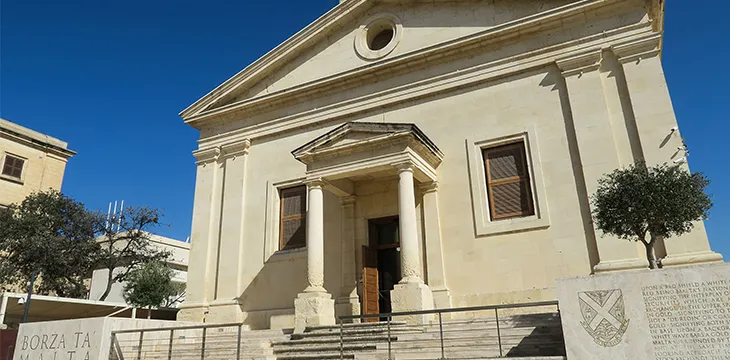|
Getting your Trinity Audio player ready...
|
After a slight hiatus, the blockchain and cryptocurrency sector is back on track in Malta with yet another interesting announcement.
On Tuesday, cryptocurrency exchange Binance announced that it has entered into a partnership with the Malta Stock Exchange (MSE) to launch a new digital exchange specifically for security token trading.
@MaltaStockExch pleased to announce an MOU signed, with crypto giant @binance, to set up a security token Exchange.We are becoming a leading crypto centre of excellence. @JosephMuscat_JM @edward_scicluna @SilvioSchembri @cz_binance pic.twitter.com/F3T86y7g44
— Malta Stock Exchange (@MaltaStockExch) September 11, 2018
The agreement came by way of a memorandum of understanding between MSE Chairman Joseph Portelli and Binance Chief Financial Officer Wei Zhou, with Minister for Finance, Prof. Edward Scicluna, also in attendance.
Scicluna has been notably absent from the blockchain and crypto scene in Malta, which is usually the prerogative of Junior Minister Silvio Schembri.
The new trading platform will leverage the stock exchange’s 26-year track record of operating as a regulated stock exchange, with the associated regulatory compliance, while building on Binance’s business model and global reach.
Addressing a press conference after the signing of the agreement, Scicluna described the technology as revolutionary and one that would change the world. He said Malta won’t let any opportunity pass it by, insisting that it would have been “crazy” not to establish itself in this area.
Like many other new technologies, blockchain and cryptocurrencies are not without their risks, Scicluna acknowledged.
“This is not an excuse to let it go by and be taken up by others,” the minister said, stressing that Malta was taking the “prudent route.”
Scicluna said that MSX PLC, the fintech and digital asset subsidiary of the Malta Stock Exchange, had been set up specifically for such ventures. He said “this type of service” fit well with a small open economy like Malta.
Portelli said the government had shown itself to be a trailblazer in the blockchain space, adding that “whether you like it or not, the technology is here to stay.”
According to the MSE chairman, security token exchanges would become common the world over in a few years.
Meanwhile, Scicluna stressed the need for transparency and effective measures to combat money laundering, as well as respecting consumer rights, explaining that the difference between Malta and other jurisdictions was that Malta had recognised that a new technology needs new regulations.
Turning to Malta’s new digital ledger technologies legislation, Scicluna said that some of the best legal brains had commended Malta’s approach in dealing with the new sector.
The minister said he hoped that Malta would have the same success it had with the gaming sector following the establishment of the Malta Gaming Authority.
However, sources said that the legislative framework that was proposed for the three blockchain bills includes some onerous requirements that will be considerably difficult to fulfil if business is to really take off. The current market slump in the cryptocurrency markets is also affecting investor confidence.

 07-05-2025
07-05-2025 





